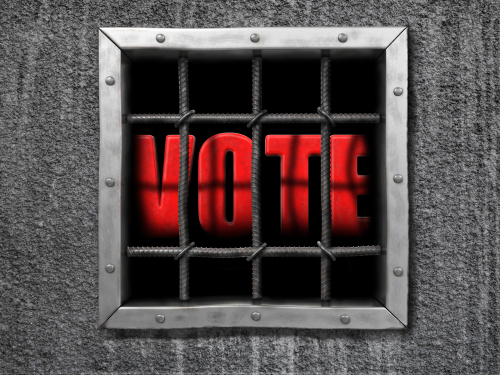Ex-felons in Florida who can't afford fees and fines are entitled to vote, 11th Circuit says

Image from Shutterstock.com.
Ex-felons in Florida who can’t afford to pay outstanding fees and fines are entitled to vote under a state constitutional amendment restoring voting rights, a federal appeals court ruled Wednesday.
The 11th U.S. Circuit Court of Appeals at Atlanta ruled that a fines-and-fees requirement would violate the equal protection clause as applied to the indigent plaintiffs who filed suit.
The decision upheld a federal judge’s injunction requiring the state to allow the plaintiffs to register and vote if they are able to show that they are “genuinely unable to pay” the financial obligations.
Amendment 4, approved by voters in 2018, authorizes restoration of voting rights for many felons “upon completion of all terms of sentence including parole or probation.”
The Florida legislature passed a bill that implemented the amendment and interpreted its language to require payment of all fines, fees and restitution imposed as part of the sentence before a felon could vote.
The Florida Supreme Court issued an advisory opinion last month agreeing with the legislature’s interpretation. The court construed the meaning of the wording and did not address constitutional issues.
That opinion conclusively resolves that the Florida legislature properly interpreted Amendment 4, the 11th Circuit said. But denying the right to vote to those who can’t afford to pay is an unconstitutional wealth classification, the appeals court said.
“Here, these plaintiffs are punished more harshly than those who committed precisely the same crime—by having their right to vote taken from them likely for their entire lives,” the appeals court said. “And this punishment is linked not to their culpability but rather to the exogenous fact of their wealth.”
The appeals court noted that it’s not unconstitutional to bar felons from voting for life. But the fact that the state could bar voting by all felons, “does not mean it can continue punishment for some and not others” based on wealth, the court said.
The appeals court ruled in a per curiam opinion by Judges R. Lanier Anderson and Stanley Marcus of the 11th Circuit and U.S. District Judge Barbara Rothstein of the District of Columbia, sitting by designation.
The plaintiffs were represented by the American Civil Liberties Union, the ACLU of Florida, the NAACP Legal Defense and Educational Fund and the Brennan Center for Justice at New York University’s School of Law. Their press release is here.



